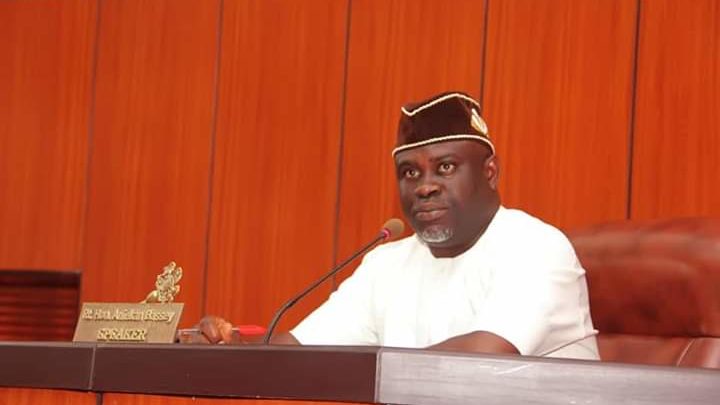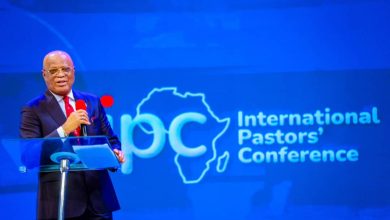
It is no more news that the Akwa Ibom State House of Assembly on Friday, May 29, 2020 suspended the Chairman of Nsit Atai Local Government Council, Lady Emem Ibanga, and that of Uyo, Elder Imoh Okon, indefinitely from office over alleged gross misconduct and administrative inefficiency.
This would not be the first time the 7th Assembly would suspend a Local Government Chairman. On July 25, 2019, the House of Assembly suspended Abak Local Government Chairman over alleged misconduct.
However, following the suspension of Uyo and Nsit Atai Council Chairmen, several arguments have come to the fore as to whether the House of Assembly has the powers to suspend or punish an elected Local Government Chairman as the case may be. Since powers in a democratic society are derived from laws, what does the law provide on this issue?
AKHA Points to their Source of Powers
According to a report from the Press Unit of the Office of the Speaker, Akwa Ibom State House of Assembly, Speaker Aniekan Bassey is quoted to have said that the House resolution to suspend the Chairmen was based on Section 81 (1) of the Local Government Administration Law (2017) as amended.
The law is quoted to provide that “Where the peaceful functioning of the Local Government or its Council is hindered by protracted crisis, the House of Assembly may, by a resolution passed by a simple majority of all its Members, impose such restrictive measures in the Local Government Area or its Council as the House of Assembly may deem fit.”
Yet, the Chairman of the House of Assembly Committee on Information, who is a Lawyer, Barr Aniefiok Dennis points out that the resolution by the House was also backed by Section 12, Sub-One (a) of the Local Government Administration Law, which “gives the House of Assembly the power to direct inquiry or investigation to any matter or thing with respect to which it has power to make laws.”
He also states that the “action of the House is also enshrined in Section 128 of the 1999 Constitution as well as in Order Nine, Rule One (a) of the House Standing Order, which gives the House power to oversight the Local Government Councils.”
Interestingly, the Akwa Ibom State House of Assembly is not the only Assembly that has recently suspended a Council Chairman. The Osun State House of Assembly on May 4th, 2020 suspended the Chairman of the Ife North Local Government of Osun State, Hon. Taiwo Orosanya over allegations of misappropriation of funds. They also cited the Local Government Administration Law as granting them the powers behind their actions. Nevertheless, many lawyers will not agree with these reasons.
Lawyers Disagree With the Powers of the Assembly
The Nigeria Bar Association (NBA) Osun State berated Osun State House of Assembly over the suspension.
The Association in a press statement faulted the resolution of suspension stressing that the House seized the functions of the elected parliamentarians of the Ife North Local Government.
In the same vein, A legal practitioner, who is the Managing Solicitor, Whyte Horse Solicitors, Lagos and also an International Law Partner in the Law Firm of Ceejay Solicitors Stratford, London, Barr Victor Ukutt insists that the Akwa Ibom State House of Assembly by the provision of section 7 of the Nigerian 1999 constitution as amended, coupled with several court interpretations does not have the powers to suspend a Local Government chairman.
Referring to section 1(3) of the 1999 constitution as amended which states that “If any other law is inconsistent with the provisions of this Constitution, this Constitution shall prevail, and that other law shall, to the extent of the inconsistency, be void”, the lawyer explains that for the House of Assembly to hold on to the provisions they made in Local Government Administration law which is against the dictates of the constitution for their actions simply make their law invalid.
He recalls that during the administration of former Governor Victor Attah, the same Local Government Administration Law was relied upon to suspend Emmanuel Ebe who was then the Chairman of INI Local Government Area.
RELATED: Legislative Autonomy: AKHA Members Who Should forever remain silent
Ukutt mentions that when the case between Emmanuel Ebe and Akwa Ibom state Government went to Court, the Appeal Court sitting in Calabar Division ruled that neither the State Governor nor the House of Assembly have the right to dissolve the Council or suspend Chairman of the Council using the Local Government Administration Law of Akwa Ibom State.
He recalls that the Appeal Court consequently asked that the suspended Chairman be reinstated.
Ukutt offers insight to the fact that the reason the law frowns at the action is because the constitution which he stress is superior to any law sees the local government as a separate tier of government that is not subject to the caprices of the State legislature.
He explains that for the Executive at that tier of government, It is only members of the legislative arm ( Councilors) of that level of government that have the power to suspend the Council Chairman.
The legal practitioner says the Councillors at the legislative chambers can suspend the Chairman by relying on Legislative and Privileges Act to pass the necessary consequential resolutions suspending a Chairman for investigation in event of misappropriation of fund.
He notes that this resolution when tendered in a bank that the council’s account is domiciled can also be used to freeze the account of Council thus force the Chairman to avail himself for investigation.
Ukutt says a case in point where Councilors exercised this power in Akwa Ibom State was during the reign of Aniekan Akpan as Council Chairman in Ukanafun Local Government Area.
Ukutt who notes that he played a role as a lawyer in the case recalls ” These Councilors took the resolution to the bank and the bank honoured it and the account was frozen. The Chairman was then called to order to give an account. It was after he had given the account that a counter order was passed and it was lifted.
” As a Councillor, you don’t need to go to the House of Assembly when the Chairman is suspected to misappropriate funds. You have the powers. So, the councilors who took this matter to the House of Assembly, do not simply know their rights and powers. ”
What is more, the Legal Practitioner says the Supreme Court of Nigeria in the case of Ekiti State Government vs Prince Sanmi Olubumo and 13 others has made a landmark judgment with a standing directive on the matter.
Directive from Supreme Court
The Supreme Court of Nigeria in a five man panel headed by Justice Olubolade Joe in a unanimous judgement delivered on December 11, 2019 finally buried the powers of state Assemblies and governors from sacking or suspending dully elected local government chairmen .
The Supreme Court ruled that henceforth ” the act of giving legislative powers to state Assembly members to undertake the process of sacking elected local government chairmen is null and void”.
The panel of judges unanimously declared that only the legislative arm of a LG Council is empowered with the residual constitutional backing to sack council chairmen that maybe found blameworthy of any gross misconduct or violations of rules guiding public servants.
Interestingly, Justice Olubolade Joe-led panel also directed that a copy of the judgement should be served to all 36 State Houses of Assembly and the Minister of FCT on or before December 30, 2019.
Analysing that landmark judgment, Daily Trust Editorial of January 3, 2020 states: “As elected representatives of their people, LG chairmen and councilors are expected to be accountable to the people whose votes brought them into office, and not state governors or House of Assembly Members.
” If governors elected into office cannot be removed or suspended by the President or National Assembly except by State legislators through legislative procedures in the State Assembly, why then should other than the legislative arm of the LG decide when an elected LG chairman should leave office?”
The Newspaper advise that unless the ongoing amendment to the country’s 1999 Constitution by the 9th session of the National Assembly capture this Supreme Court judgement, the Supreme Court may not have had its last sitting on this matter.
With State Assemblies still ignoring the Supreme Court directive,, would the suspended Chairmen especially in Akwa Ibom State approach the court for Justice or would the Akwa Ibom State House of Assembly take a retreat in accordance to the directive of the Supreme Court? The answer is left to be known in days to come.




